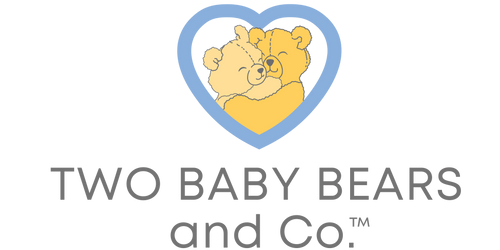
Some babies that I like to call "unicorn babies" may show no signs that they are going through the 4-month sleep regression. But if your babies are anything like mine were, you will know that they are going through it! Like all regressions, this is actually a developmental “progression.” Your baby is undergoing tremendous brain development (also referred to as developmental leaps). If you follow the “Wonder Weeks” app, Wonder Week 12 is the “The World of Smooth Transitions.” During this leap, your infant’s sleep will likely take a nosedive. The bad news? Unlike other regressions, the 4-month sleep regression is typically not temporary because your little one’s sleep cycles are maturing to be similar, yet shorter, to that of an adult. The good news? Your baby is now old enough to do some sleep training if you so choose. Please keep in mind that there are a lot of methods to choose from so don’t let the words “sleep training” scare you!
Newborn Sleep
For the first 6-8 weeks of life, your infant has what are called “immature” sleep cycles. What does this mean? It means that their circadian rhythm is still sorting itself out. Your newborn is working through day/night confusion and sleep is often all over the map (unless you have a unicorn baby). You may notice that your baby will have a 3-hour nap followed by a 10-minute nap. Sleep is inconsistent, as sleep cycles are all over the place. Newborns also experience deep stages of sleep. You may notice that your newborn sleeps anywhere...even in noisy and bright environments. As your infant approaches the 8-week mark, sleep environment and sleep routines are even more crucial. Another way to maximize sleep during the first several months is to use a swaddle. I highly recommend the Swaddle Sleeves Pod as it is a game changer in the world of infant sleep (but we will save this for another blog post!)
There is SO much to know about newborn sleep. I have written over 30 pages of information in my Newborn Sleep Guide.
Why Does My Baby Wake Up After 30-45 Minutes?
As mentioned above, your 4-month-old is undergoing a developmental leap. Keep in mind that every baby is unique, and this regression can occur somewhere around the 4-month mark, give or take a couple of weeks. Part of this development includes permanent changes to their sleep cycle. Their circadian rhythm is establishing itself, and sleep cycles are maturing and becoming more organized. Your infant is also experiencing lighter stages of sleep along with deeper stages of sleep. Rather than transitioning between 2 stages of sleep, your baby is now experiencing 4 stages of sleep. Sleep cycles are also matured in the sense that they are similar to an adult’s sleep cycles--the only difference is that baby’s sleep cycles are shorter than ours. Adult sleep cycles are 60-90 minutes and babies’ sleep cycles are 30-45 minutes.
Do you notice that your little one will wake after a short 30-45 minute nap? Or have you noticed that your once perfect little napper is now having short naps and waking up fussy? This is why! They are waking up after a sleep cycle and looking for their "sleep crutch." A sleep crutch is anything that you use to put your baby to sleep. Most often this is a bottle/nursing, rocking or holding. Prior to this regression, you were able to “get by” by relying on these sleep crutches. You were able to rock your baby to sleep, put them in their crib, and walk away. It is like a truck hits you when the 4-month regression strikes because, SURPRISE, your baby begins to wake up the moment you attempt to lay them down. As newborns, they immediately fell into deep stages of sleep and were easily transferred. Now, they are in lighter stages of sleep and notice if you try to lay them down and walk away. So the cycle continues, you rock, nurse, bottle feed, or bounce your baby to sleep only for him to wake up once he is laid down. Frustrating, right? Fear not, as mentioned above, this is the perfect time to get some precious sleep back for your baby and self.
Stages of Sleep
There are 4 stages of sleep. Let's go over them below:
- Stage 1 is a very light stage of sleep which is described as “Falling asleep” or “dozing off”.
- Stage 2 is still a light stage of sleep where your body temperature starts to lower and prepare for deeper stages of sleep.
- Stage 3 is deep and restorative. In this stage, body tissues repair, the body’s immune system and energy levels are recharged.
- Stage 4 is where we dream. This stage is also referred to as REM sleep. This is where memories and sensory information is processed.
White Noise
As your little one starts to experience lighter stages of sleep, they can be more easily awoken. Noises are more likely to wake your baby up during these lighter stages of sleep and we don’t want that. White noise machines help to block out external noise so that your little one can stay asleep for longer.
Other Skills
All sleep regressions coincide with a newly learned skill, such as rolling. Your little one is SO excited to practice their newfound skills that they want to practice All. The. Time, even in the middle of the night or when they are supposed to be napping. My advice to you is to 1) take a deep breath, 2) remind yourself that this is temporary, and 3) practice, practice, practice. The more your little one practices their newfound skills, the sooner they can master the skill and the novelty will wear off. One of the most common skills learned during this time is rolling. Babies typically roll from front to back first. The difficulty lies in rolling back onto the stomach. You may find that your infant is rolling onto their stomach during a nap or night and become angry when she cannot roll back. It is extremely important that both arms are free as soon as your infant is showing signs of rolling. This is why the Swaddle Sleeves Sack is so amazing. Arms can be free yet still lightly weighted to muffle the startle reflex.
How Long Will This Last?
Unlike other regressions, the 4-month sleep regression is not necessarily temporary. Why? Because is it not just a phase, but rather the maturing of their sleep cycles. Sleep regressions look different for every baby and on average they last 2- 6 weeks. This may sound daunting, but fear not! With some sleep training, your little one can learn how to self soothe and fall asleep independently. Falling asleep independently is a skill your child will need for the rest of their lives! You are teaching them valuable skills that they will use forever.______________________________________________________________
